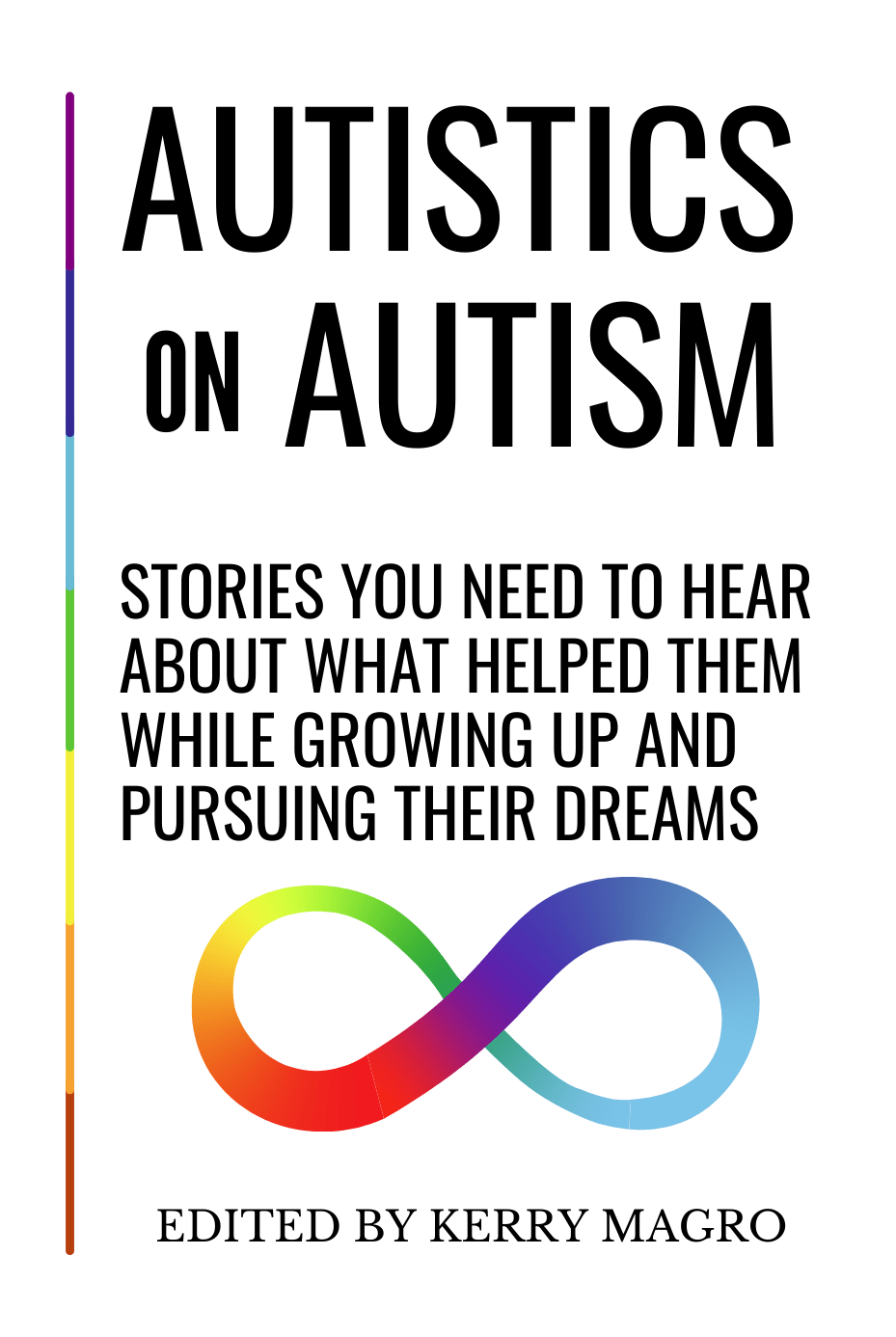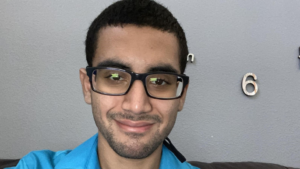This guest post is by Hudson Adams-Farley, a young man who was diagnosed with autism at 3 and who has been accepted to Saint Leo University. Hudson is applying for the Spring 2023 Making a Difference Autism Scholarship via the nonprofit KFM Making a Difference started by me, Kerry Magro. I was nonverbal till 2.5 and diagnosed with autism at 4, and you can read more about my organization here. Autistics on Autism: Stories You Need to Hear About What Helped Them While Growing Up and Pursuing Their Dreams, our nonprofit’s new book, was released on March 29, 2022, on Amazon here for our community to enjoy featuring the stories of 100 autistic adults.
I used to think that having a disability meant that you would not succeed in today’s society. Growing up, I did not fit the traditional growth profile, physically or mentally. My parents took me to countless doctors and psychologists, who evaluated me for many years. These visits started at the age of three and even continue to the present day. Eventually, I was diagnosed with autism which, since being diagnosed, is now referred to as being on the spectrum.
I am best described as having Asperger’s syndrome, and I am high functioning. My disability is difficult to determine because there are no physical or medical tests that are used to diagnose the disorder. Doctors look at a child’s developmental history and behaviors to make this diagnosis, and they believe that it is the parents who are the most reliable for monitoring the child’s progress, as well as the child’s future ability to succeed in life.
In my parent’s efforts to get me a good education, they worked collectively with the state, school district, and even private tutors. I struggled in public elementary school because I needed more individual help than the teachers could give me. By the fifth grade, I firmly believed I would not be able to make it through middle school, graduate high school, and especially not be successful on my own. I was homeschooled for a number of years but by my junior year of high school, I transferred to a small charter school so I could have more social interaction with other kids my age. My parents never gave up on me and my education, and for that I am thankful. My mother often jokes and says that I am her “paperwork child,” which explains the three large boxes of medical, psychological, and educational files she has accumulated over the last 18 years.
I was about 10 years old when I realized that I was good at sports and was passionate about them. It was natural for me, and I felt very comfortable playing many different athletic roles. A common trait of Asperger’s syndrome is an apparent lack of coordination in movement. Since I am passionate about athletics, I am very fortunate to not experience this, although I do have a mobility quirk of my own. I walk with a stilted gait, which is most easily described as walking on your toes. This is something I am not consciously aware of, but it tends to cause me embarrassment when people point it out because I don’t really have any control over it. Over time I have learned how to better handle situations where people bring my quirks (both physical and mental) to attention, but it took time to believe that I could get to where I am now.
I also started following professional sports and became very knowledgeable about the various teams, their players, records, and the coaching staff. Some of my friends and family started calling me the “Rain Man” of sports. I have an outstanding memory for facts and statistics relating to sports; this ability truly helped me change the way I view myself. Most people with Asperger’s syndrome have a limited range of interests and appear obsessively invested in just one thing. Personally, I obsess over any and everything relating to sports. I commit to memory a huge amount of information and knowledge about that select interest, which can seem bizarre to others. But to me, it feels good to know that I can talk to people in an intelligent and informative way about something like sports that brings people together and creates a sense of community.
When participating in high school sports, there are academic requirements you have to maintain in order to be allowed to play, and it was hard for me to believe that I could accomplish those goals. I was determined to achieve a good grade point average so that I would be eligible to participate. In order to accomplish my goals, I communicated with my teachers and worked hard to keep up with assignments, and did the best I could on testing. After a lot of hard work and discipline I am proud to say I have held a steady GPA for the past two years, which has helped me see that I can be successful academically. Over time, my belief that I could not only make it through middle school, but also graduate high school, was challenged many times.
Struggling through elementary school, going through five years of homeschooling, I was challenged by the belief that I could not be socially adaptable as well. I am proud to say that I now have a circle of people I call close friends, which further helped me to believe in myself.
Throughout my childhood, I have visited more doctors and specialists than most kids experience. My diagnosis with Asperger’s syndrome has never held me back, despite what I may have felt inside. My intellectual IQ is roughly two years behind. My belief that I would ever make it to where I am today was not only challenged but has definitely changed. I have proven to myself that I can achieve anything I put my mind to, as a person, a student, and an athlete.
I plan to walk across the stage at my high school graduation very proud, before heading off to college. Labels are given and often come with a generic definition. I was labeled and I was challenged, but I believed in myself, and I am proof that students who work hard and persevere can achieve whatever they desire.
Follow my journey on Facebook, my Facebook Fan Page, Tiktok, Youtube & Instagram.
My name is Kerry Magro, a professional speaker and best-selling author who is also on the autism spectrum. I started the nonprofit KFM Making a Difference in 2011 to help students with autism receive scholarship aid to pursue post-secondary education. Help support me so I can continue to help students with autism go to college by making a tax-deductible donation to our nonprofit here.
Autistics on Autism: Stories You Need to Hear About What Helped Them While Growing Up and Pursuing Their Dreams was released on March 29, 2022 on Amazon here for our community to enjoy featuring the stories of 100 autistic adults. 100% of the proceeds from this book will go back to our nonprofit to support initiatives like our autism scholarship program. In addition, this autistic adult’s essay you just read will be featured in a future volume of this book as we plan on making this into a series of books on autistic adults.















